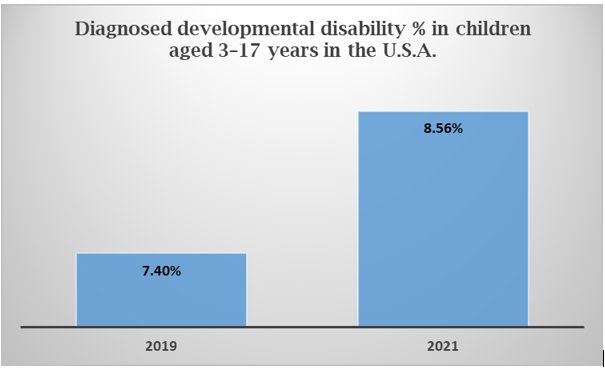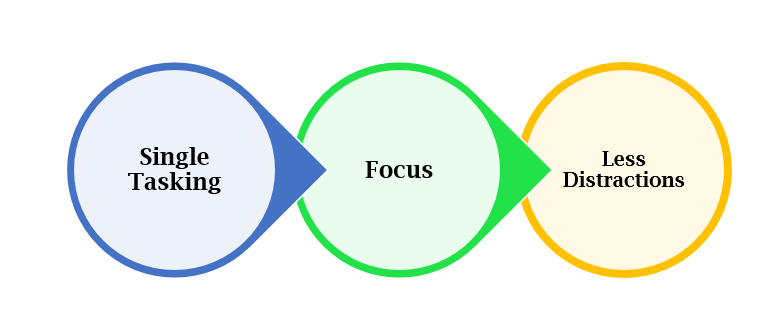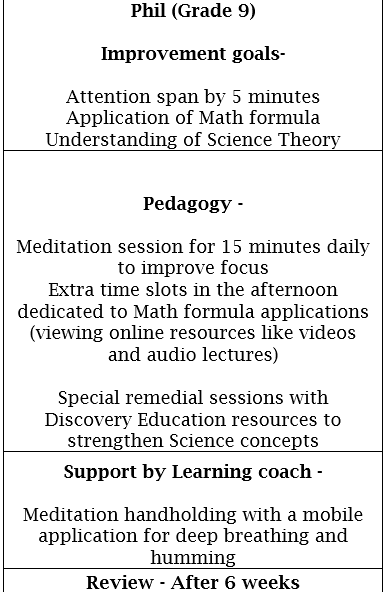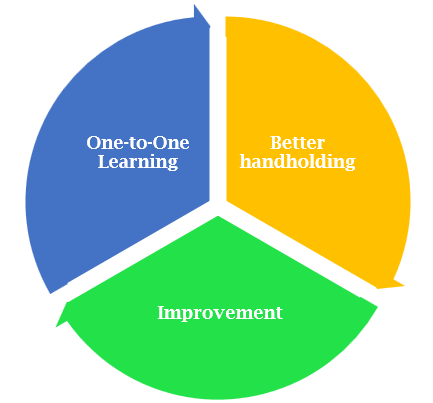Effective Strategies to Help Slow Learners Catch Up in Studies
Technically, the term slow learner refers to students who are slightly below average intelligence. But there is a catch! It
Technically, the term slow learner refers to students who are slightly below average intelligence. But there is a catch!
It is not as simple as it sounds!
In the overall school population, 15 to 17% of students are some type of slow learners. And many times, students with mild intellectual developmental disorders are also misunderstood as slow learners!
In the U.S.A., the rate of diagnosed developmental disability in children was 7.40% in 2019. By 2021, it reached a mark of 8.56%
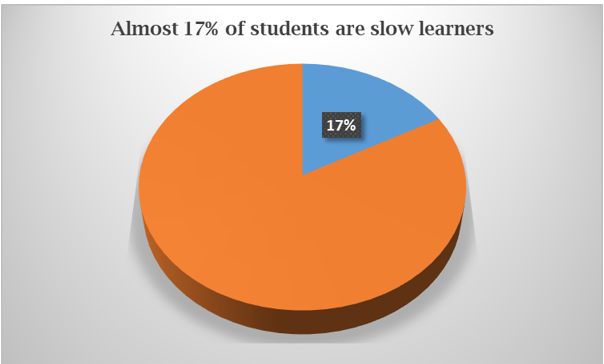
What are Slow Learners and How to Identify Them?
Slow learners often lag in their studies. They depict signs like demotivation and struggle to reach the defined academic goals in a regular setting.
What are the Possible Causes of a Student to be a Slow Learner?
A student can be a slow learner due to psychological, intellectual, or environmental factors. These students need a non-threatening environment and a tailored learning plan to perform better.
My Online High School Student Phil
As a teacher in an online school, I am trained to know the slow learner’s meaning and identify students with these traits. And this is where it started!
Phil was one of the slow learners who struggled to stay focused and could lose interest soon.
Despite these challenges, his case was not hopeless. Because I had faith in the results of the best remedial activities for slow learners.
Here’s How I got Started with it (Ways to Treat Slow Learners in an Online School)
Figuring Out Details to Plan Ahead
It’s obvious!
To help a slow learner in the classroom, it’s important to know the learning needs, pain areas, difficulties, and preferences (that can be used as strengths) precisely. In Phil’s case, his distractibility stood out as a prominent hurdle to his learning.
A quick fact here!
Research suggests that ringing cell phones is a common distractor for 68% of students (in a survey). 75% of students reported the inability to understand the instructor as a distractor. And 72% were distracted by the noise of the students talking in the class.
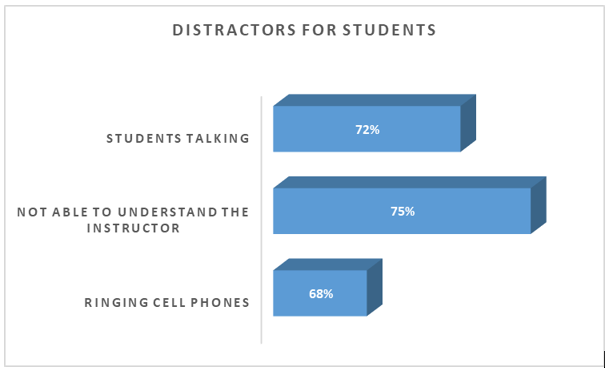
This knowledge of his personality type was the foundation for planning. And I started jotting the best strategies for slow learners.
Cultivating Habits to Promote Learning
Very often there is no need for treatment for slow learners. Because strategies work just fine!
In Phil’s case, I gradually conditioned his mind to focus on a single task at a time, helped his mom create a study schedule, and requested to have a gadget-free study corner.
Next, it was time to add my secret ingredient- AN INDIVIDUALIZED LEARNING PLAN!
Individual Learning Plan Works Wonders
In an online school, we refrain from using words like slow learning disability. Instead, our learning plans do the needful. Unlike a traditional, school, Phil needed more time, some more repetitions, and an overall shift of school hours as he preferred afternoon time to learn better.
Phil’s Individualized Education Plan (IEP)
Remedial activities for slow learners can be game-changers if they are well-planned!
Here’s what Phil’s IPE looked like:
Strengths –
- Strong ability to recall information once understood.
- Good command of English language grammar.
- Shows improvement with reinforcement techniques.
- Does better with small study sessions.
- Is open to feedback.
Weaknesses –
- Loses focus after approx. 20 minutes (based on behavior observation).
- Struggles to understand complex Mathematical concepts.
- Can mug up formulae but cannot apply these to Math problems.
- Loses interest in Science theory classes more than other subjects.
Create Additional Learning Opportunities
One of my tried and tested strategies for slow learners was to help them find and connect the meaning of academics in real life. Phil was a curious student and like anyone else, he was also in love with the engaging videos across streaming platforms. My con call with his parents and the school counselor helped in find an opportunity in the permitted screen time!
We created a list of some Science shows BBC documentaries, and movies that Phil could watch on weekends. Unfortunately, the treatment of slow learners in regular schools makes things worse for them. For Phil, Science and Math were dreaded subjects, and he wanted to avoid these as much as possible. And I knew that this approach needed to be changed to help him succeed.
We initiated our plan, after all, what’s better than consuming educational content?
In an online school, we believe in limitless learning. And I cascaded this idea to Phil’s parents as well. The family’s upcoming holiday had itinerary inclusions of Science fairs, museums, and some fun activities with homeschooling families in collaboration.
All this made learning possible 24/7/365!
Choosing One-to-One Learning
There is no single slow learner meaning that defines all types of learners. So the most important remedial action is to give personalized handholding to a slow learner like Phil
With International Schooling’s One-to-One Learning Plan, Phil had the chance to learn at his own pace and freed himself from the inhibition of asking questions. In almost a couple of weeks, he started improving. I supervised his performance and discussed things in detail with his mom. Our NO FAIL strategies for slow learners proved to be beneficial. And with slight modifications, we are planning to achieve higher goals –
Such as striking off Phil’s name from the list of slow learners in the classroom by grade 11!
A Word from International Schooling
A customized learning plan can work for many types of slow learners. Pick your ideal program, and experience the impact of remedial activities for slow learners in no time!
Frequently Asked Questions
Q1. Which method is best for slow learners?
Ans: When teachers know the slow learners meaning, they can plan an individualized education plan. This is the best way to help these students.
Q2. How can we solve the problem of slow learners?
Ans: As long as the student has no learning disability (concluded after a clinical diagnosis), there is no need for medical treatment for slow learners. Remedial activities, extra classes, individual sessions, and counseling help them to improve.
Q3. How would you treat a slow learner?
Ans: Treat the student gently, appreciate all small and big achievements, and reinforce desirable behavior (and improvement in performance) to the student excel.
Q4. Mention some activities for slow learners.
Ans: Engaging in hands-on activities, fun games, puzzles with low and medium difficulty levels, videos, etc. are great remedial activities for slow learners.
Suggested Reads
- Is Homeschooling a Trend? What expert thinks about homeschooling
- Helicopter Parenting: How Does It Impact Kids?
- How To Be Emotionally Supportive For Your Kids
- 5 Strategies For Building A Growth Mindset In Your Child
- Positive Thinking Strategies For Teenagers
- Promoting Self-Regulation In Teens And Kids
- Common School Problems That Your Child Could Be Facing
- Signs Of Toxic Parenting And Ways To Overcome It
Mira Lew
Aug 01, 2024
Recent Blogs
Unlock Your Future Today - Enroll Now in the Best American Online School!
 BOOK A DEMO
BOOK A DEMO